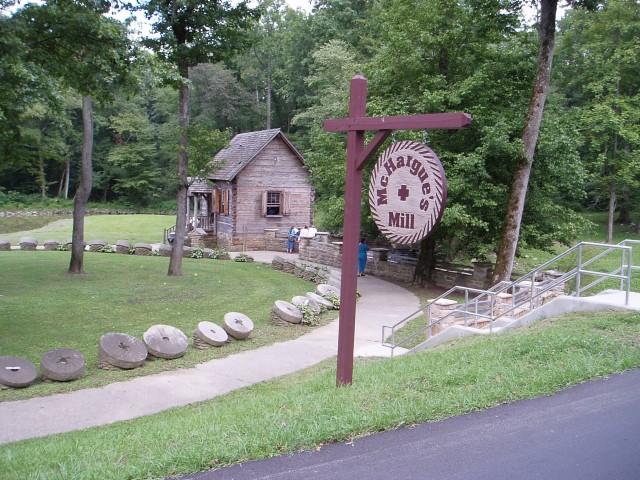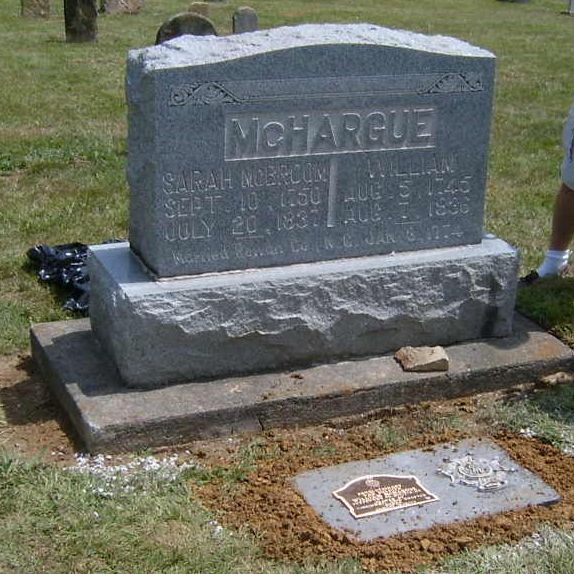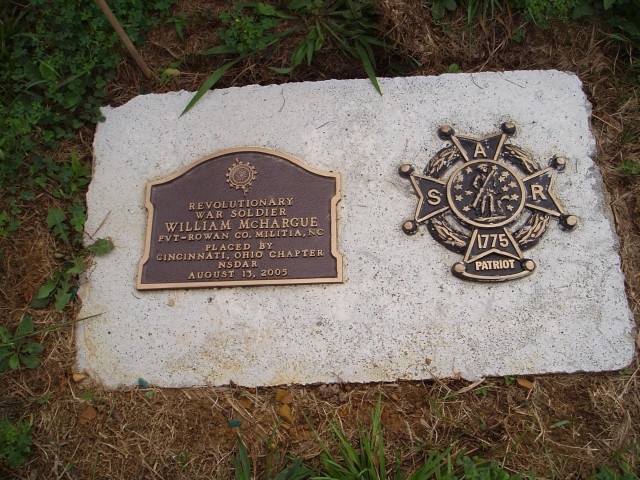William McHargue, patriot ancester to Ralph Bowman, was the third son of Alexander McHargue and his first wife, born August 5,1745, in Lancaster County Pennsylvania. As a young boy, he moved with the family to North Carolina in the early 1750's.
On January 19, 1774, William married Sarah McBroom, the marriage certificate being signed by Sarah's brother, John McBroom. William and Sarah settled on the south side of McHargue Mountain in Rowan County, perhaps in his father's first home which is believed to have been left to him when his father left N.C. to return to Pennsylvania. William's brother, John, was married to Sarah's sister, Margaret McBroom.
William served in the Revolutionary War in the North Carolina Militia as a minuteman. In his pension testimony he testified that he served three separate times as a private, first in 1777 under Capt. Patrick Morrison. He served again in 1779 under Capt. James McGathy (McCathy?) in the 2nd Regiment commanded by Col. Francis Locke. In 1780, he volunteered in the Militia as a minuteman under Capt. John Sloan. During this five-month service, he fought at the Battle of Ramseur's Mill. His wife's brother, John McBroom was killed in this battle as was his captain, John Sloan. Apparently he forgot that he served a fourth time. Under Capt. Joseph Sharpe, he served in the Light Horse Service from the 26th day of January until the 11th of March, 1781, under the command of Col. Francis Locke.
In 1803, William and Sarah, at ages 58 and 53, left North Carolina with all of their children except the oldest son, James. James remained in North Carolina and lived out his life on McHargue Mountain. He was the postmaster at New Hope from the time the office was established until his death in 1856. Members of the McHargue family continued to be in charge of the New Hope post office until nearly 1900.
The McHargue family leaving North Carolina included William and Sarah, their two married sons, Alexander and John with their wives and children, 17 year old William II, and 13 year old Samuel. The family crossed the Appalachian Mountains and stayed two years on the Clinch River in Tennessee. They then moved on to Knox County, Kentucky and settled near what is now Corbin. On the bank of Lynn Camp Creek, William and his sons built a fort for protection against the Indians. We don't know how long it was necessary for him and his family to remain in the fort before they felt safe to build their homes. We also don't know if William homesteaded or if he purchased the land he claimed, but we believe he possessed many acres, since his sons, who located near him, owned so much.

On the bank of Lynn Camp Creek, they erected one of the first, if not the first, water powered gristmills and sawmills in all southeastern Kentucky. The rocks (or burrs) used for his corn mill were conical shaped, being the first designed for water driven stone in the grinding of corn into meal. The very burrs used by William are now located in the Levi Jackson Wilderness Road State Park where a working restoration of the original McHargue Mill still grinds corn on the Little Laurel River. (Information abstracted from article by Glynis McHargue Patterson; www.mchargueclan.org)


